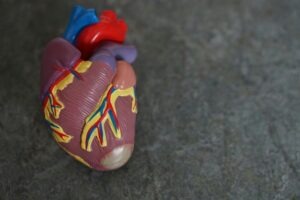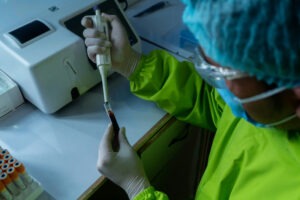Clinical-stage biotechnology company Tenaya Therapeutics has received fast track designation from the US Food and Drug Administration (FDA) for its gene therapy product candidate, TN-201.
Subscribe to our email newsletter
This therapy is being developed to treat Myosin Binding Protein C3 (MYBPC3)-associated hypertrophic cardiomyopathy (HCM).
TN-201 is the firm’s potential first-in-class adeno-associated virus (AAV)-based investigational gene therapy to treat HCM caused due to mutations in the MYBPC3 gene, which is the most common genetic cause of HCM.
TN-201 is intended to provide a completely functional MYBPC3 gene to restore normal levels of myosin-binding protein.
The protein regulates the contraction and relaxation of the heart muscle.
TN-201, in preclinical studies of MYBPC3 knock-out models, has shown to stop disease progression besides significant and durable disease reversal and survival benefit after a single dose.
Tenaya chief medical officer Whit Tingley said: “Receipt of Fast Track designation for TN-201 reflects the pressing unmet need among HCM patients whose disease is caused by MYBPC3 genetic mutations.
“As we prepare to begin dosing patients later this year, we look forward to continued close collaboration with the FDA under this designation in support of TN-201’s development.”
TN-201 also has got Orphan Drug Designation from the FDA and Orphan Medicinal Product designation from the European Commission to treat HCM due to mutations in the MYBPC3 gene.
In January 2023, the company announced that the FDA cleared its Investigational New Drug application (IND) for TN-201.
Tenaya is commencing the MyPeak-1 Phase 1b clinical trial to evaluate the safety, tolerability and clinical efficacy of a one-time intravenous infusion of TN-201.
This multi-centre, open-label study will enroll adults diagnosed with MYBPC3-associated nonobstructive HCM.
Tenaya expects the first patient to be dosed in this clinical trial during the third quarter of 2023.
Furthermore, the firm is carrying out two non-interventional studies to back the development of TN-201 – one is a study analysing seroprevalence to AAV9 antibodies among adults with MYBPC3-associated HCM, and the other is a MyClimb, a natural history study of pediatric patients with MYBPC3-associated HCM.
 Advertise With UsAdvertise on our extensive network of industry websites and newsletters.
Advertise With UsAdvertise on our extensive network of industry websites and newsletters.
 Get the PBR newsletterSign up to our free email to get all the latest PBR
news.
Get the PBR newsletterSign up to our free email to get all the latest PBR
news.

